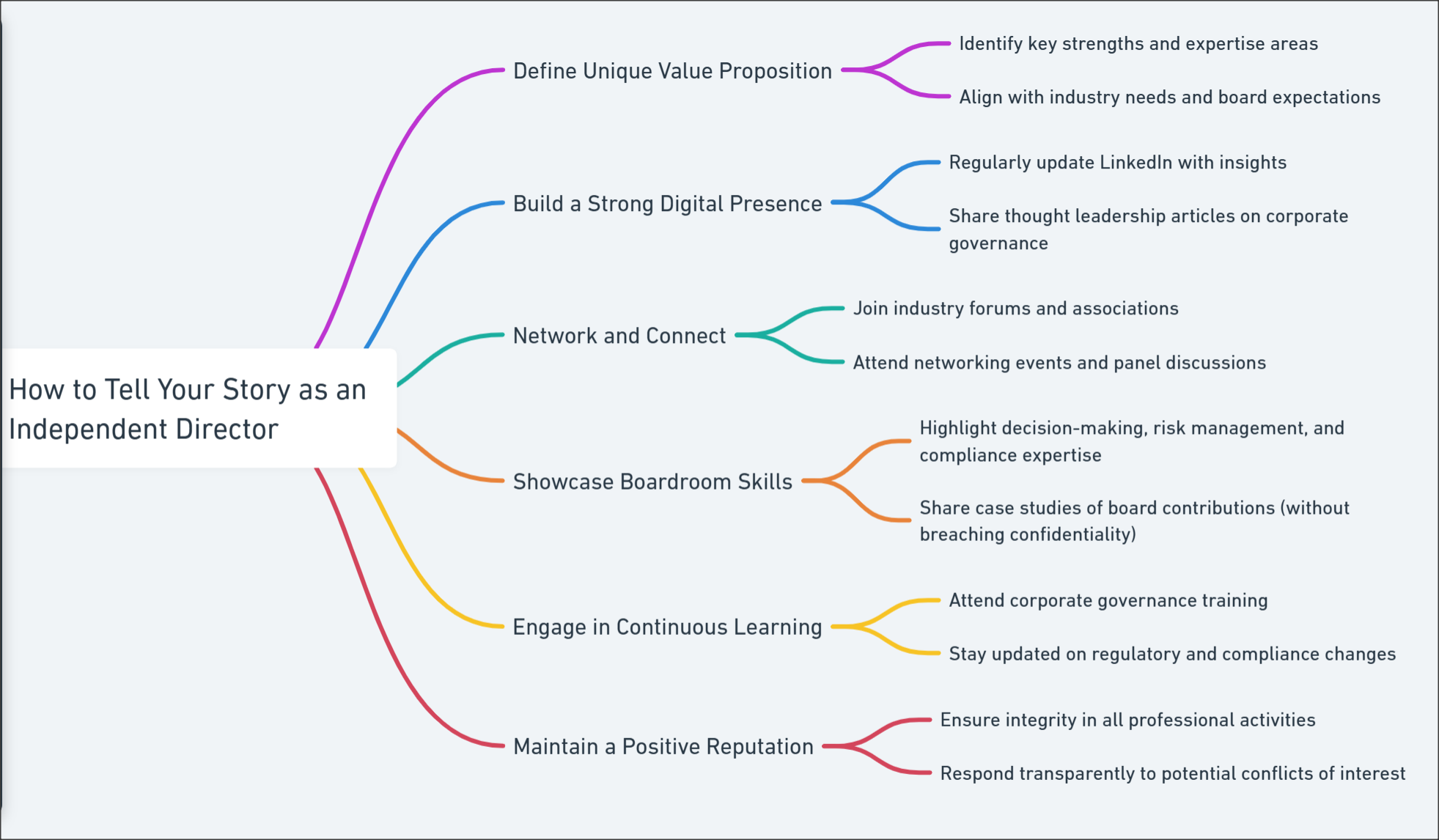In today’s evolving corporate landscape, personal branding has become essential for independent directors in India. As I reflect on my journey and the experiences of fellow professionals, it’s clear that building a distinct personal brand comes with unique challenges, particularly for independent directors who must balance visibility with impartiality.
- Balancing Visibility with Integrity: As independent directors, we are trusted with safeguarding the interests of stakeholders, including minority shareholders, and ensuring the board’s decisions reflect transparency and ethics. Personal branding, however, often demands a level of self-promotion that can feel at odds with this role. We must be cautious not to appear overly self-serving, as our credibility hinges on being perceived as impartial guardians. The challenge, then, is finding ways to communicate our unique contributions to governance without compromising the impartiality that defines our role.
- Navigating Perceptions and Stereotypes: The independent director role in India has traditionally been seen as conservative and, at times, passive. Although the landscape is shifting, there is still a perception that directors should remain “behind the scenes,” which can create a hesitation around branding. However, independent directors today need to be more proactive and assertive, providing strategic guidance while challenging the status quo when necessary. The hurdle here is not only in shifting others' perceptions but also in reshaping our own internalized beliefs about what it means to be an independent director in a modern context.
- Differentiating in a Crowded Space: India’s regulatory changes and increased focus on corporate governance have led to a surge in the number of independent directors. Standing out in a pool of qualified professionals requires clear differentiation. Many independent directors have decades of industry experience and notable achievements, so our personal brand must go beyond these basics. We need to articulate our unique perspectives, areas of expertise, and the distinct value we bring to the boards we serve on. Building a brand around a specific governance niche or sector focus can help, but it requires careful thought, consistency, and an authentic voice.
- The Challenge of Digital Presence: As a traditionally offline role, the idea of independent directors using digital platforms to build their brand is relatively new in India. LinkedIn, for example, has become a critical space for thought leadership, yet many directors remain hesitant to share insights openly. The fear of being too outspoken or unintentionally misrepresenting the board can make digital presence feel risky. However, an authentic, well-crafted digital presence can not only enhance our credibility but also inspire the next generation of directors. The key is finding a balance between sharing valuable insights and respecting confidentiality.
- Maintaining a Cohesive Brand Across Multiple Boards: For directors who serve on multiple boards, personal branding comes with the added challenge of consistency. Each board has its own unique culture, values, and strategic goals. Ensuring that my personal brand aligns with these diverse boardrooms while remaining true to my core principles can be a balancing act. I have learned that my brand should be built around core values : integrity, accountability, and governance excellence rather than board-specific agendas. This consistency helps establish trust and keeps me grounded in my role as an independent overseer.
- Building a Brand Based on Long-Term Value:Unlike entrepreneurs or executives who might focus on short-term gains, independent directors need to build a brand rooted in long-term value creation. Personal branding for us is less about immediate visibility and more about sustained influence in the corporate governance sphere. It requires patience, as the results may not be immediately visible. However, by remaining committed to our core principles and continuously demonstrating our expertise, we gradually build a reputation that resonates with the ethos of the role.
Final Thoughts: Personal branding for independent directors in India is challenging, but it’s also an opportunity to shape the future of corporate governance. By being intentional and thoughtful about how we present ourselves, we not only create a strong personal brand but also contribute to a culture of accountability, transparency, and strategic oversight.
As I continue my journey, I am constantly reminded of the importance of aligning my brand with my values, staying authentic, and prioritizing the stakeholders we serve. Personal branding may be complex for independent directors, but by embracing these challenges, we can redefine the role for future generations.
